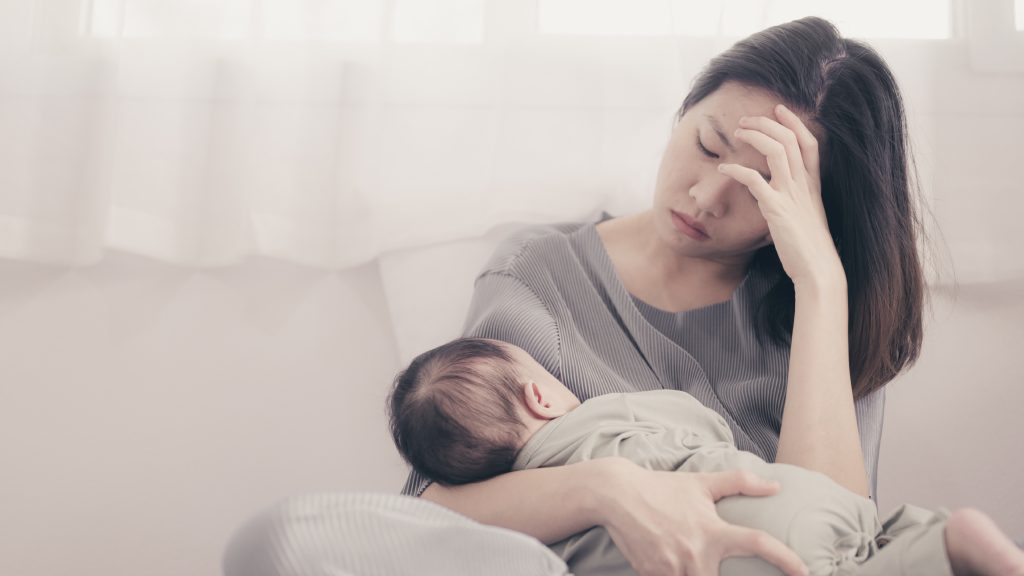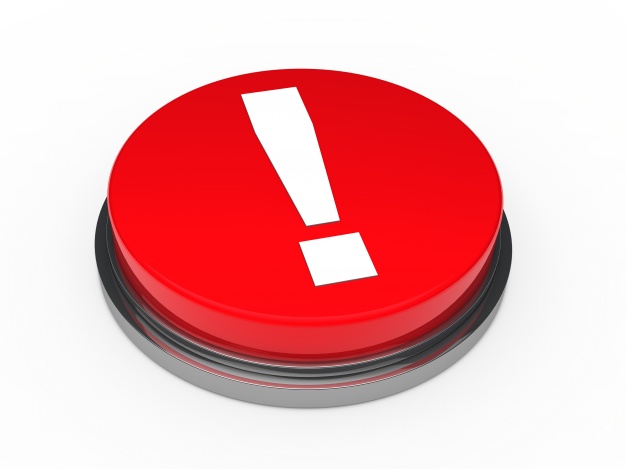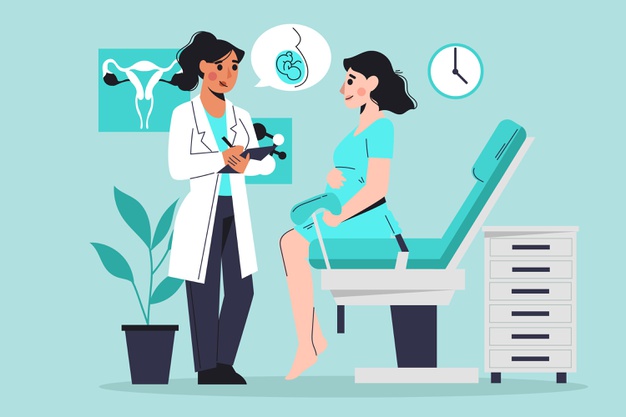Postpartum Blues and Postpartum Depression
The mother should know the difference between postpartum depression and postpartum blues.
She also should know that:
– Depression is a disease like any other.
– It is not her fault and it does not mean she is a bad person.
Postpartum blues:
It is a mild type of depression within 2 – 3 days after delivery and usually go away within 2 weeks.
The mother might be:
– Feeling emotional for no apparent reason.
– Moody.
– Unable to sleep or concentrate.
– Anxious.
It is normal to have these symptoms after having a baby but they must be mild and do not stop the mother from having a normal life.
Postpartum depression:
Mother can start having the symptoms 1 – 12 months after delivery. It can persist for months if left untreated.
Fathers also can experience postpartum depression specially if they are young or struggling financially.
Risk factors of postpartum depression:
– History of depression.
– History of postpartum depression.
– Family history of depression or other mental health problems.
– Problems in marriage.
– Stressful events in the previous year.
– Financial problems.
– Health problems with the newborn.
– Difficulty in breastfeeding.
– Having multiple newborns.
– Unplanned pregnancy.
Symptoms of postpartum depression:
– Loss of interest.
– Angry and anxious.
– Inability to concentrate or make decisions.
– Lack of energy that the mother cannot get out of bed for hours.
– Changes in appetite, weight and desire to have sex.
– Trouble sleeping, sleep too much or too little.
– Unable to bond with the baby and taking care of him/her.
– Less bond with family and friends.
– Feeling of failure as a mother, shame or guilt.
– Thoughts such as hurting the baby, death or suicide.
Postpartum depression treatment:
– Medications to relieve depression. Some medications must be avoided in case of breastfeeding.
– Talking to a therapist.
– Self help:
a. Talking to family and friends and what they can do to help.
b. Having some time doing things you enjoy.
c. Exercise and healthy diet.
d. Sleep as much as you can.
Postpartum depression risks if not treated:
For the child:
– Associated with increased risk of health problems such as asthma, colic, diabetes, diarrhea.
– Delays in language development.
– Sleeping problems.
– Emotional and behavioral problems.
– Cognitive impairment.
For the mother:
She can have chronic depressive disorder.
Prevention:
If you have history or family history of mental health, it is advised to consult a specialist when planning to have a baby and during pregnancy to monitor the symptoms closely.
Also, antidepressants can be prescribed to be used during pregnancy and immediately after delivery.



